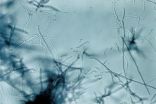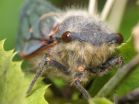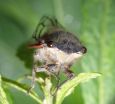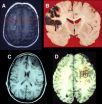(Press-News.org) Yale University researchers have identified a handful of bacterial culprits that may drive inflammatory bowel diseases (IBD) such as Crohn's disease and ulcerative colitis, using patients' own intestinal immune responses as a guide.
The findings are published Aug. 28 in the journal Cell.
Trillions of bacteria exist within the human intestinal microbiota, which plays a critical role in the development and progression of IBD. Yet it's thought that only a small number of bacterial species affect a person's susceptibility to IBD and its potential severity.
"A handful of bad bacteria are able to attain access to the immune system and get right at the gut," said Richard Flavell, the Sterling Professor of Immunobiology at the Yale School of Medicine. "If you look at the bacteria to which we have made an immune response, you can begin to find these bad actors."
Flavell's research team focused on antibody coatings on the surface of bacteria. In particular, Yale researchers looked at bacteria with high concentrations of an antibody coating called Immunoglobulin A (IgA).
"The coating is our body's attempt to neutralize the bacteria," Flavell said. "It binds to the bad bacteria. We only make these IgA responses to a limited number of organisms."
He and his team confirmed a correlation between high levels of IgA coating and inflammatory responses in the human intestine. To do this, the team collected "good" and "bad" bacteria from a small group of patients and transplanted them into mice. In healthy mice, there was no influence on intestinal inflammation; in mice with induced colitis, those with the suspected "bad" bacteria showed signs of excessive inflammation and other IBD symptoms.
Flavell warned that more research is necessary to learn how many bacterial species fall into the "bad" category and whether those populations are common to all IBD patients or are unique to each patient.
But the study's results indicate that anti-bacterial therapies for IBD are possible, Flavell said. Such anti-bacterial approaches might include highly specific antibiotics, vaccines, and probiotics.
"We believe an anti-bacterial strategy has a place in treating IBD," Flavell said.
INFORMATION:
Noah Palm and Marcel de Zoete were co-first authors of the study. The research was supported by the Blavatnik Family Foundation, a Rubicon Fellowship from the Netherlands Organization of Scientific Research, the Cancer Research Institute Irvington Fellowship Program, the National Institutes of Health, the U.S. Department of Defense, the Howard Hughes Medical Institute, the New York Crohn's Foundation, and a CCFA Career Development Award.
Yale study identifies possible bacterial drivers of IBD
2014-08-28
ELSE PRESS RELEASES FROM THIS DATE:
Drug shows promise against Sudan strain of Ebola in mice
2014-08-28
August 28, 2014 — (BRONX, NY) — Researchers from Albert Einstein College of Medicine of Yeshiva University and other institutions have developed a potential antibody therapy for Sudan ebolavirus (SUDV), one of the two most lethal strains of Ebola. A different strain, the Zaire ebolavirus (EBOV), is now devastating West Africa. First identified in 1976, SUDV has caused numerous Ebola outbreaks (most recently in 2012) that have killed more than 400 people in total. The findings were reported in ACS Chemical Biology.
Between 30 and 90 percent of people infected with Ebola ...
NASA sees a weaker Tropical Storm Marie
2014-08-28
When NOAA's GOES-West satellite captured an image of what is now Tropical Storm Marie, weakened from hurricane status on August 28, the strongest thunderstorms were located in the southern quadrant of the storm.
NOAA's GOES-West satellite captured an image of Marie on August 28 at 11 a.m. EDT. Bands of thunderstorms circled the storm especially to the north. The National Hurricane Center noted that Marie has continued to produce a small area of convection (rising air that forms the thunderstorms that make up Marie) south and east of the center during some hours on the ...
DeVincenzo study breakthrough in RSV research
2014-08-28
MEMPHIS, Tenn. – The New England Journal of Medicine published research results on Aug. 21 from a clinical trial of a drug shown to safely reduce the viral load and clinical illness of healthy adult volunteers intranasally infected with respiratory syncytial virus (RSV).
Le Bonheur Children's Hospital and the University of Tennessee Health Science Center researcher Infectious Disease Specialist John DeVincenzo, MD, is lead author of this study.
RSV is the most common cause of lower respiratory tract infections in young children in the United States and worldwide. ...
Small molecule acts as on-off switch for nature's antibiotic factory
2014-08-28
DURHAM, N.C. -- Scientists have identified the developmental on-off switch for Streptomyces, a group of soil microbes that produce more than two-thirds of the world's naturally derived antibiotic medicines.
Their hope now would be to see whether it is possible to manipulate this switch to make nature's antibiotic factory more efficient.
The study, appearing August 28 in Cell, found that a unique interaction between a small molecule called cyclic-di-GMP and a larger protein called BldD ultimately controls whether a bacterium spends its time in a vegetative state or ...
Second-hand e-cig smoke compared to regular cigarette smoke
2014-08-28
E-cigarettes are healthier for your neighbors than traditional cigarettes, but still release toxins into the air, according to a new study from USC.
Scientists studying secondhand smoke from e-cigarettes discovered an overall 10-fold decrease in exposure to harmful particles, with close-to-zero exposure to organic carcinogens. However, levels of exposure to some harmful metals in second-hand e-cigarette smoke were found to be significantly higher.
While tobacco smoke contains high levels of polycyclic aromatic hydrocarbons – cancer-causing organic compounds – the level ...
Healthy Moms program helps women who are obese limit weight gain during pregnancy
2014-08-28
PORTLAND, Ore., August 28, 2014 — A new study finds that women who are obese can limit their weight gain during pregnancy using conventional weight loss techniques including attending weekly group support meetings, seeking advice about nutrition and diet, and keeping food and exercise journals.
Results of the Healthy Moms study, published in Obesity, also show that obese women who limit their weight gain during pregnancy are less likely to have large-for-gestational age babies which can complicate delivery and increase the baby's risk of becoming obese later in life.
"Most ...
University of Montana cicada study discovers 2 genomes that function as 1
2014-08-28
MISSOULA, Mont. – Two is company, three is a crowd. But in the case of the cicada, that's a good thing.
Until a recent discovery by a University of Montana research lab, it was thought that cicadas had a symbiotic relationship with two important bacteria that live within the cells of its body. Since the insect eats a simple diet consisting solely of plant sap, it relies on these bacteria to produce the nutrients it needs for survival.
In exchange, those two bacteria, Hodgkinia and Sulcia, live comfortably inside the cicada. Since all three divvy up the nutritional roles, ...
Non-adaptive evolution in a cicada's gut
2014-08-28
Organisms in a symbiotic relationship will often shed genes as they come to rely on the other organism for crucial functions. But now researchers have uncovered an unusual event in which a bacterium that lives in a type of cicada split into two species, doubling the number of organisms required for the symbiosis to survive.
Cicadas of the genus Tettigades feed only on sap they suck out of plants. To create some of the essential amino acids they rely on two bacterial helpers — Candidatus Hodgkinia cicadicola and Candidatus Sulcia muelleri — with which they have lived in ...
How studying damage to the prefrontal lobe has helped unlock the brain's mysteries
2014-08-28
Until the last few decades, the frontal lobes of the brain were shrouded in mystery and erroneously thought of as nonessential for normal function—hence the frequent use of lobotomies in the early 20th century to treat psychiatric disorders. Now a review publishing August 28 in the Cell Press journal Neuron highlights groundbreaking studies of patients with brain damage that reveal how distinct areas of the frontal lobes are critical for a person's ability to learn, multitask, control their emotions, socialize, and make real-life decisions. The findings have helped experts ...
Circulating tumor cell clusters more likely to cause metastasis than single cells
2014-08-28
Circulating tumor cell (CTC) clusters – clumps of from 2 to 50 tumor cells that break off a primary tumor and are carried through the bloodstream – appear to be much more likely to cause metastasis than are single CTCs, according to a study from investigators at the Massachusetts General Hospital (MGH) Cancer Center. Their report in the August 28 issue of Cell also suggests that a cell adhesion protein binding CTC clusters together is a potential therapeutic target.
"While CTCs are considered to be precursors of metastasis, the significance of CTC clusters, which are ...






